Turning Points of History: Events That Opened and Closed an Era
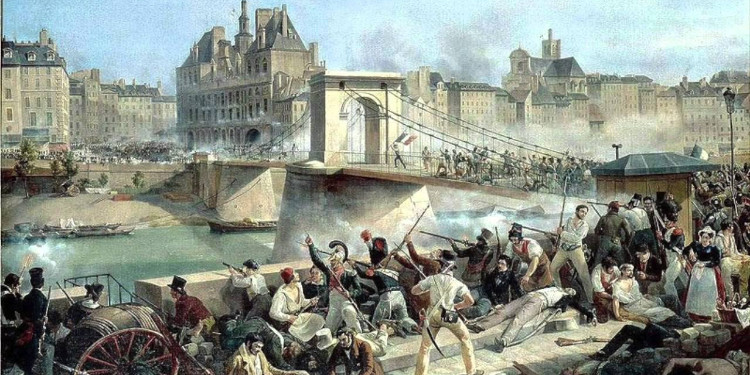 History has been examined by dividing it into periods, and by calling these periods "ages", research has become much easier. Socio-cultural revolutions, wars and revolutions that open and close eras; They manage to attract attention with the universal features they contain. Let's take a closer look at these striking events that shook the whole world to its core...
History has been examined by dividing it into periods, and by calling these periods "ages", research has become much easier. Socio-cultural revolutions, wars and revolutions that open and close eras; They manage to attract attention with the universal features they contain. Let's take a closer look at these striking events that shook the whole world to its core...
1) Invention of Writing (4000 B.C.-3500 B.C.)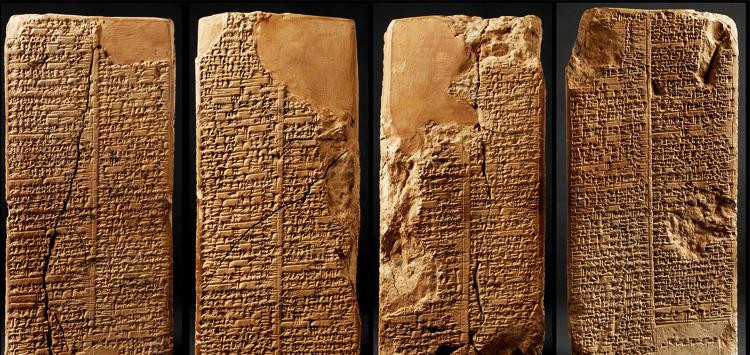
Devam Et
Next
X
The civilization that discovered cuneiform and caused the beginning of historical periods and the Antiquity is the Sumerians. Sumerians, who lived in Mezeopotamia geographically, implemented the Urugakina Laws, the first written laws in history, along with the cuneiform script. These laws include innovations such as fines for compensation and the ban on private property. In addition, the Laws of Ur Nammu, the Laws of Ana Ittuşu and the Laws of Lipit Ishtar also belong to them.
Sumerians also used their temples called "ziggurat", which they built to get closer to the gods, as libraries and archives. They also kept all the valuable texts in these temples, thus shedding light on humanity.
2) Migration of Tribes (MS375)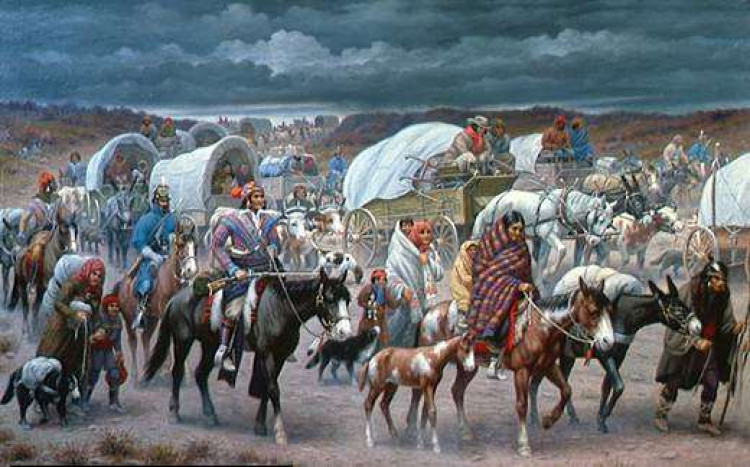
The Migration of Tribes, initiated by the Hun Turks who escaped from Chinese oppression and came to the Caspian Sea region, closed the Ancient Age and opened the Middle Ages. With this great progress that started under the leadership of Balamir, the Huns took some tribes under control. They expelled the tribes they could not control from their homes and caused a huge change in the European geography. In addition to the Ostrogoths, Visigoths, Gepits and Vandals, communities such as the Suebi, Angles, Saxons, Burgonts, Alans and Franks had to migrate westward. There was a great fluctuation as many tribes left their places and expelled others from their lands, and this situation was generally called "Migration of Tribes".
There is no doubt that the largest state that was greatly damaged and deeply affected by the Migration of Tribes would be Rome. Rome, which described all communities other than itself as "barbarians", was divided into two, east and west, as a result of the mobility created by these barbarian tribes. In addition, the kings over Europe lost their authority and had to submit to feudalism. In this way, political unity would be disrupted and scholastic thought would become stronger with the increase in church influence. On the other hand, things were going pretty well for the Turks. Balamir, who moved the map and started the great migration, succeeded in establishing the European Hun State, with Hungary as the center (375). Powerful rulers such as Uldız, Karaton, Rua and Attila took over his legacy and continued to be Rome's nightmare.
3) Conquest of Istanbul (1453)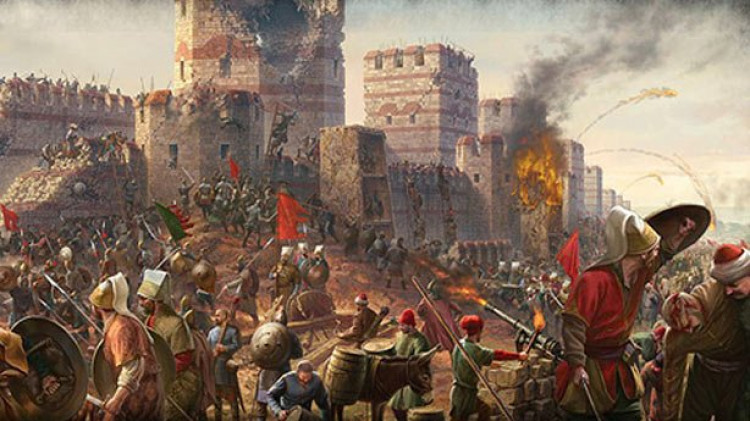
The conquest of Istanbul, carried out by the Ottoman sultan Mehmet the Conqueror in 1453, closed the Middle Ages and opened the New Age. Mehmet the Conqueror, who managed to capture the place that his ancestors wanted to capture many times but could not, destroyed the Byzantine walls that could not be destroyed for thousands of years and erased the Eastern Roman Empire from the stage of history. In this way, it was understood that no state in the world could be protected by any walls.
There were some pashas who did not trust Sultan Mehmet because he was only 21 years old and inexperienced. They thought that a powerful city like Istanbul could not be conquered, and even if it was conquered, he would not be the one to do it. However, the young sultan ignored all these words and set to work. First of all, in order to solve the problem of Karamanoğulları and prevent them from coming across him during the conquest; He signed friendship treaties with Hungary, Serbia and Venice. Then, he took control of the strait by having the Rumeli Fortress built opposite the Anatolian Fortress. He had the cannon master Urban cast huge cannons called "Şahi". When he subsequently formed a navy of 400 pieces, all preparations were completed to take action.
The campaign, which started on April 6, 1453, lasted a total of 54 days as a result of fierce battles and heavy losses and ended in victory. Mehmet II entered Istanbul on 29 May 1453, taking the name Fatih Sultan Mehmet. First, he went to Hagia Sophia and consoled the people who were crying there. He turned to the Patriarch and said;
"Stand up. I am Sultan Mehmet. "I say to you, your friends and the whole people, from today onwards, do not fear my wrath regarding your life or your freedom." said.
He then ordered the army commanders that the people would not be tortured in any way and that those who did not comply with this order would be punished. Hagia Sophia, the most distinguished structure of the city, which was captured on Tuesday, was repaired without damaging its original lines upon the instructions of Fatih and was converted into a mosque within 3 days. Fatih Sultan Mehmet himself would lead the first Friday prayer here.
4) French Revolution (1789)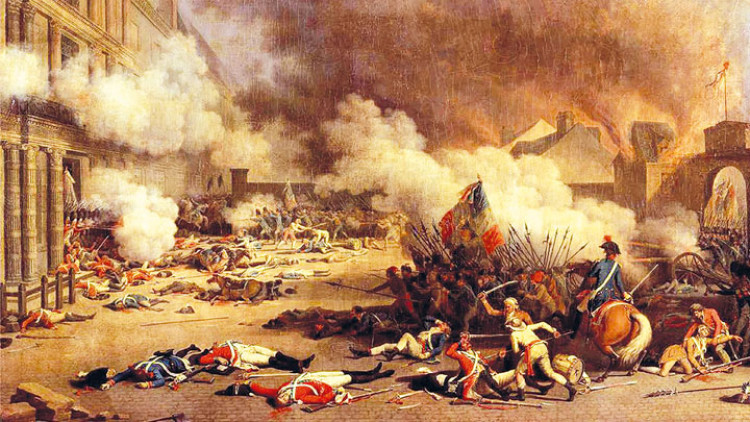 The French Revolution, which started on July 14, 1789, disrupted many dynamics in the world and closed the New Age and opened the Modern Age. In this way, people; They were introduced to concepts such as rights, justice, equality and freedom. In fact, not only did they meet each other, but they also managed to protect them with official documents.
The French Revolution, which started on July 14, 1789, disrupted many dynamics in the world and closed the New Age and opened the Modern Age. In this way, people; They were introduced to concepts such as rights, justice, equality and freedom. In fact, not only did they meet each other, but they also managed to protect them with official documents.
When the rebellion launched by the 13 colonies in America against England in 1775 due to heavy taxes ended successfully, the French were greatly affected by this situation. They themselves are exploited by the nobles, the clergy, and the court; They were crushed under the burden of taxes that were too high for them to pay. While the king and his entourage were living in abundance, the people were almost on the verge of starvation. For this reason, on July 14, 1789, the Bastille prison was surrounded and the rebellion started. When the news of the fall of the Bastille was heard, the passion for attack of thousands of others would be ignited. Castles and monasteries were burned; The mansions of important families were plundered and the cities declared their autonomy. France was literally divided into armed camps, and the administration of Paris was seized. On August 5, the National Assembly (Assemblêe Nationale Constituante) abolished all privileges of the nobility and priests from the feudal period. The same assembly would prepare and declare the Declaration of Human and Citizen Rights on August 28, 1789, thus paving the way for the beginning of a new era.
Today, we are still in the Modern Age. Of course, we cannot predict with which event the next era will begin and with which it will end, and we end our article here, hoping that the years will shed light on us.



























































